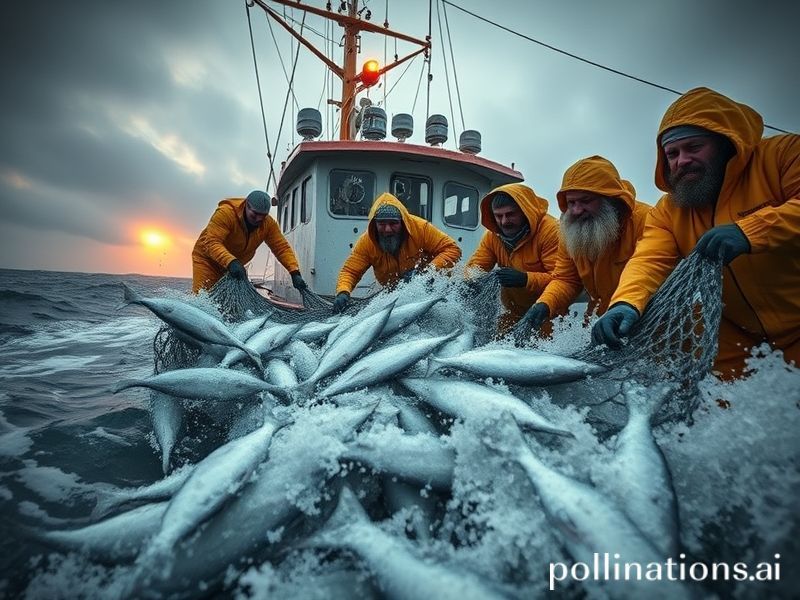Seawolves 2.0: How Modern Privateers Turn Global Chaos into Balance-Sheet Gold
Somewhere between the Baltic’s rusting shipyards and a Manila karaoke bar at 3:17 a.m., the term “seawolf” has mutated from nautical folklore into a corporate euphemism for the modern privateer. These are not the cuddly, whiskered cousins of the otter you’re picturing. Picture instead a floating LinkedIn profile with a flag of convenience, a shell company domiciled in the Caymans, and a legal team that can ghost-write a UN resolution before breakfast. The seawolves have traded cutlasses for convertible bonds, yet the game remains the same: pick the carcass clean while bureaucrats argue over the wine list.
Historically, the word conjured images of Norse longships or those irritable Cossacks who terrorized the Black Sea. Today’s seawolves wear Patagonia vests over Kevlar and list “maritime risk solutions” on glossy brochures. Their natural habitat stretches from the Strait of Malacca—where insurance premiums bloom like algae—to the Horn of Africa, where EU navies perform elaborate waltzes around pirates who learned their trade from YouTube. The global supply chain, that fragile daisy chain of just-in-time desperation, is their hunting ground. When the Ever Given wedged itself athwart the Suez Canal like a constipated dragon, seawolf brokers reportedly earned more per diverted tonne than the captain earned in a decade. Crisis is simply another asset class.
The international implications are deliciously cynical. Flags of convenience—Liberia, Panama, the Marshall Islands—now outnumber actual Liberians, Panamanians, and Marshallese, creating a jurisdictional lasagna no court wants to reheat. Crews hail from Odessa, Cebu, and Dakar, paid in currencies that collapse faster than a crypto exchange on a Tuesday. Meanwhile, the cargo—your iPhones, your avocados, your ethically sourced yoga mats—belongs to shareholders in Delaware who think the Indian Ocean is a new artisanal gin.
Western governments, ever the responsible adults, have responded by privatizing deterrence. The UK’s Transport Department quietly licenses “vessel protection detachments,” which is Whitehall-speak for “guns for hire who can’t unionize.” The EU prefers satellite tracking and strongly worded press releases, a strategy previously tested on Russian oligarchs with mixed results. China, never one to miss a branding opportunity, has recast its seawolves as the Maritime Silk Road Volunteer Coast Guard, complete with TikTok influencers documenting humanitarian rice deliveries that suspiciously coincide with rare-earth surveys.
Not that the seawolves mind the attention. Their investor decks cite ESG metrics now—yes, Environmental, Social, and Governance—because nothing says “green transition” like a diesel-spewing ex-Soviet frigate retrofitted to chase trawlers away from Chinese reefs. Greenpeace calls it eco-colonialism; BlackRock calls it alpha.
The broader significance? We’ve built a civilization that outsources its nightmares. When Somali fishermen watched foreign trawlers vacuum their livelihoods, they became pirates; when Western navies downsized, mercenaries became the coast guard. The seawolf is merely the market’s elegant solution to a problem the market created. He’s the Uber driver of geopolitics: rated 4.8, drives a 2004 Hyundai with a Kalashnikov in the glovebox, and somehow still owes the platform fee.
One day, perhaps, the oceans will rise high enough to drown the paperwork. Until then, the seawolves will keep circling, sleek and hungry, converting chaos into quarterly dividends. And somewhere on a yacht off Monaco, a venture capitalist will raise a glass of 2009 Krug to the enduring efficiency of human predation—proof, if any were needed, that the more things change, the more we remain the same vicious, inventive primates with better spreadsheets.







